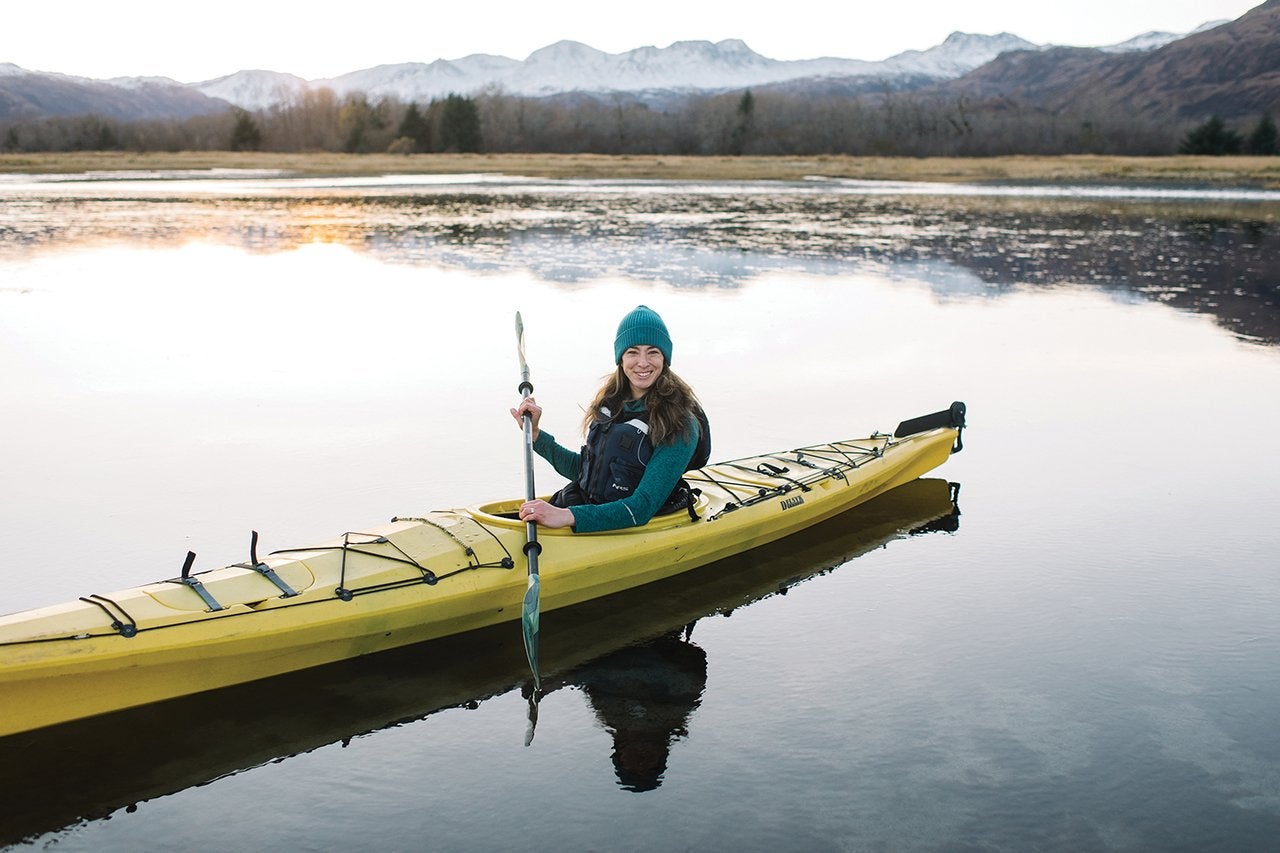If the magazine gave an award for the farthest-flung and most remote alumna, Jennifer Newby Gardner ’13 (M.S.) would surely be in the running. A fisheries biologist with the National Oceanic and Atmospheric Administration, Gardner lives in Kodiak, Alaska. Distance from Charleston: 4,889 miles.
Gardner first visited the island off the southern coast of Alaska in September 2014 when she was looking for work after earning her master’s in marine biology. A three-week training session in Kodiak preceded a shellfish observer position aboard a crab-fishing boat.
“I fell in love with the island in those three weeks,” she says. “So, after five months in the Bering Sea in the middle of winter, I high-tailed it back here. It’s not for everyone, but those who stay stay because they love it.”
In between other short-term gigs in Kodiak and starting a kayak-touring business, Gardner also got cast on a Discovery network reality TV show in 2015 called Bering Sea Gold, shot in Nome, Alaska. After auguring through a few feet of ice in Norton Sound, she would dive down through the hole connected to air, communications and hot water lines. She was supposed to be dredging for gold, but Gardner was more interested in the marine life.
“I wasn’t a very efficient operator,” she says with a laugh. “It was fascinating to be under there and see the ocean floor from that perspective at that time of year.”
Raised in St. Louis, Gardner grew up going on camping trips with her family to the North and South Carolina coasts. After staying close to home to earn her undergraduate degree in biology at Truman State University, she felt inclined to return to the Lowcountry to pursue her master’s. The College experience didn’t disappoint.
“I made some of the best friendships of my life,” she says. “I honestly can’t imagine a better program the way it was set up, seeing how much science could be done. And I just had phenomenal teachers. I feel very lucky.”
In 2017, she landed her job in NOAA’s Shellfish Assessment Program, which includes months at sea in the summer to do bottom-trawl surveys to help inform management decisions on catch limits. The survey numbers were so low for crab last summer that the Alaska Department of Fish and Game canceled the Bering Sea snow crab season this winter for the first time.
“It’s an interesting time to be a shellfish biologist because we’re experiencing huge population declines,” she says. “I’ve got an experiment running right now in our seawater lab looking at ocean acidification and temperature and how their synergistic effects might be affecting snow crabs.”
Customers of her kayaking tours, which she runs in her free time, are treated to not just crystal-clear water, but a marine expert who can talk knowledgeably about all the sea life they encounter.
“I definitely nerd out a ton on every tour,” says Gardner, whose husband owns the local bike shop. “I warn customers and say, ‘If you just want to take in the scenery, I completely understand.’ But I’ve never had anyone ask me to stop imparting science knowledge.”
Featured image by Breanna Patterson




